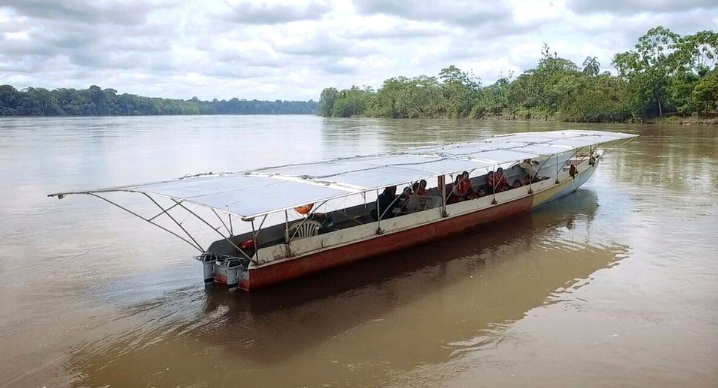News
“Solar Canoes to Navigate the Technosphere” – Laura Jimenez Rojas
What is the connection between technology, environment, and race? Are the utopic promises of an inclusive space in the ‘technosphere’[1] impossible to reach? Is it time to question how the stratification of cyberspace leads to an uneven distribution of global scale?
Arun Saldanha reflected upon some aspects of these questions. The title of his presentation “The stratification of cyberspace” is a powerful image that frames his approach from a background in human geography.
On one hand, the geological term -stratification- works as a euphemism of the hierarchical vision of society and the many layers -material and symbolic- that shape it. On the other hand, the ‘cyber’ evokes the digital media technology, which can be simply put as computers, mobile or smartphones, and laptops.
When the two ends -stratification and cyber- are brought together, then uncovered dynamics start to appear. At first, a term such as ‘race’ might be conceived as a social construction, and it is, but also it is important to note how the material reality is implicated.
In this sense, Saldanha asserts that “the uneven distribution of access to transport and communications technologies is itself racialising, because it shows that certain bodies do the touring while other bodies do the work.” (Saldanha, 2016). This is the racial division of labor, an example that is increasingly taking worldwide visibility are the cases of coltan mining in Africa and Latin America, where the bodies of some are put in -health and social- risks in order to respond to other -mostly Western- realities and bodies.
These cases show that the idea of a ‘global village’ of instant communication and intercultural understanding is still too far. Saldanha notes that the globalization is racist in its systematic effects, he expresses “Race is an effect of health inequalities spread over differently coloured bodies, not a cause”(Saldanha, 2016). To this, it could be added ‘technological inequalities’, not only on the production but also on the access and use.
While the stratoanalysis of race in a technological framework can point to the social problematics at a global scale, I consider that is also important to think of and talk about the alternative relations that are emerging both in local discourses and local practices.

Figure 1. ‘Kara Solar’ the solar canoe
‘Acceleration the Great’ is a being to be resisted (Rojas, 2017), a way could be the answer of an Amazonian peasant to the question about the agro-industrial operations in his town, he says: “why do people desire so many problems? Why always more, and more, and more?” (Rojas, 2017). Perhaps it is time to give space and voice to other forms of living as a strategy to start dismantling racism.
A recent development is a solar canoe in the Achuar community of the Ecuadorian Amazon. The dialogues between this community and the technological developers are carving a path further away from the “roads of progress” that ignore how deforestation, oil exploitation and mining are perpetuating the causes of a racist system. Solar canoes can be the cause of a new system to navigate the technosphere, a navigation where the inequalities are transformed into constructive differences that can create new and better realities.
[1] This is a term coined by Peter K. Haff, it refers “to a point in earth’s history where the geophysical presence of humanity is felt in the ‘technosphere’” (Andersen 532, 2016).
References
- Andersen, Gregers. (2016) Guattari and Planetary Computerisation. Deleuze Studies 10.4 (2016): 531-545 DOI: 10.3366/dls.2016.0244. Edinburgh University Press.
- Rojas, David. (2017) Acceleration. From the series: Lexicon for an Anthropocene Yet Unseen. By David Rojas. June 28, 2017. Accessed April 9, 2019. https://culanth.org/fieldsights/acceleration
- Saldanha, Arun. (2016) The Reality of Race. 11 January, 2016. Accessed March 26, 2019. http://www.thelearnedpig.org/the-reality-of-race/3144
- La ingeniosa canoa solar con la que se puede viajar sin petróleo por la selva ecuatoriana. Laura Pitt. BBC Mundo, enviada especial a la Amazonía ecuatoriana. 20 Abril, 2018. Accessed April 9, 2019. https://www.bbc.com/mundo/noticias-america-latina-43142227

